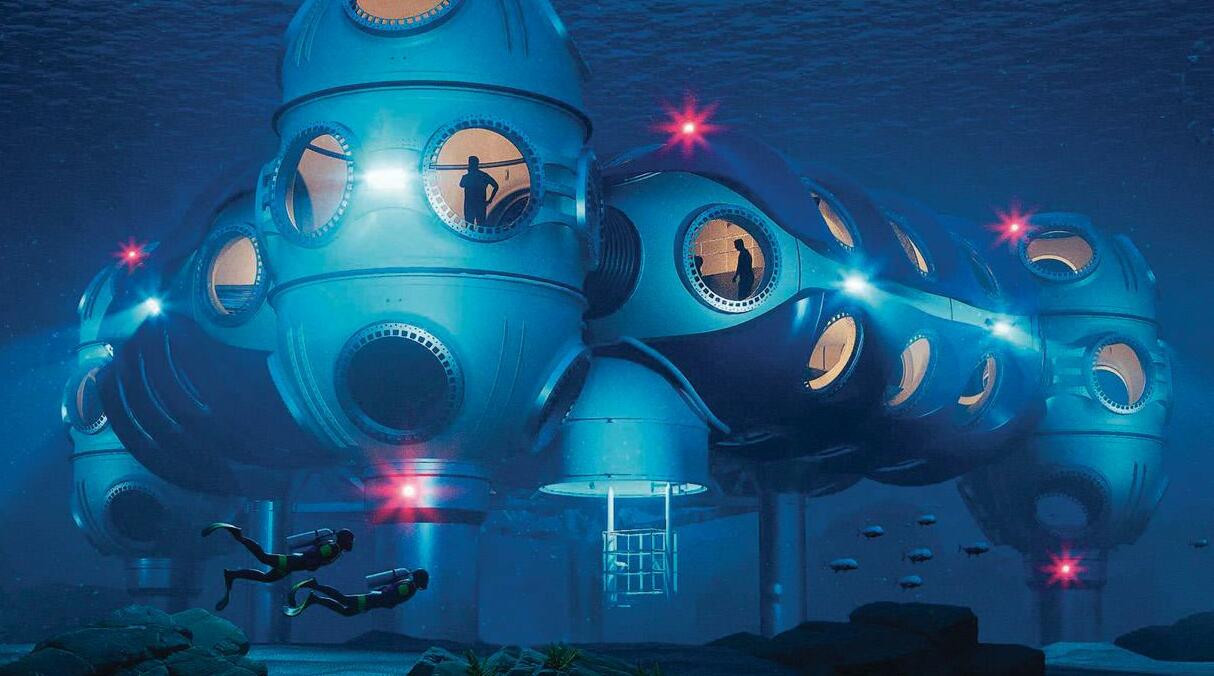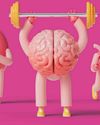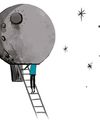Intentar ORO - Gratis
GOING DEEP
BBC Science Focus
|March 2025
An advanced new research station is being developed to explore the potential for a human settlement under the ocean
-

Whether it’s to escape environmental collapse or to explore new, unknown territories, the drive to establish human colonies in places other than on Earth has been gaining momentum in recent years. And while proposed bases on the Moon or Mars might get all the headlines, there’s another equally hostile and largely unknown location a lot closer to home that explorers are also looking towards: the bottom of the ocean.
This is by no means a new idea. Starting with French oceanographer Jacques Cousteau in the 1960s, people have been building and spending limited amounts of time in underwater habitats for decades. More recently, NASA has been sending people to the Aquarius Reef Base, a research facility on the ocean floor just off the coast of Florida, since 2001. Located 20m (approx 65ft) below the surface, scientists, engineers and prospective astronauts typically spend 7–14 days in the module.
New technology is making the prospect of longer-duration stays underwater possible, though, and British company, Deep, is employing it to develop habitats specifically for that purpose. The tech may be up to the task, but the real question is, are we?
ABOVE THE ATMOSPHERE, BELOW THE SEA
Humans are relatively weak. We don’t do well without oxygen or sunlight, and we’re not big fans of major changes in pressure. In other words, we’re not necessarily the best candidates for life at the bottom of the sea.
Esta historia es de la edición March 2025 de BBC Science Focus.
Suscríbete a Magzter GOLD para acceder a miles de historias premium seleccionadas y a más de 9000 revistas y periódicos.
¿Ya eres suscriptor? Iniciar sesión
MÁS HISTORIAS DE BBC Science Focus

BBC Science Focus
WE NEED TO TALK ABOUT INTRUSIVE THOUGHTS AND HOW TO HANDLE THEM
Disturbing ideas occur to all of us. But what happens if you're struggling to let those thoughts go?
8 mins
July 2025
BBC Science Focus
New contact lenses let people see in the dark...with their eyes closed
The new optical aids could even allow people with colour blindness to see more clearly in the future
1 mins
July 2025

BBC Science Focus
HOW MUCH WILL EXERCISE CONTROL MY BLOOD PRESSURE?
High blood pressure is a major health concern, increasing the risk of heart disease, stroke and kidney problems. As a GP, I'm often asked how to manage it, and my advice always includes exercise. But how much is enough?
1 mins
July 2025

BBC Science Focus
CHILL OUT EARTH
Geoengineering has long been a taboo subject in scientific circles. But as Earth's climate continues to warm, experts are increasingly wondering if we could, and should, take more drastic action and start tinkering with the planet in the hope of saving it
9 mins
July 2025

BBC Science Focus
YVONNE TEVLIN, VIA EMAIL: HOW CAN I BEAT COMPASSION FATIGUE?
There are plenty of claims about the “best” sleep position — for example, it’s often thought that sleeping on your left side aids digestion.
2 mins
July 2025

BBC Science Focus
WHAT'S THE BEST POSITION TO SLEEP IN?
There are plenty of claims about the “best” sleep position — for example, it’s often thought that sleeping on your left side aids digestion.
1 mins
July 2025

BBC Science Focus
Common vitamin supplement could slow ageing
Vitamin D may protect cells from age-related decline
1 mins
July 2025

BBC Science Focus
COULD SCIENTISTS UPLOAD AN ANIMAL BRAIN TO A COMPUTER?
The answer to this depends on what you mean by 'upload' and 'brain'.
2 mins
July 2025

BBC Science Focus
SOLITUDE SOLUTIONS
Shut the door, switch off your phone. Science says being alone is good for us
3 mins
July 2025

BBC Science Focus
Research team 'puzzled' by strange activity inside the Moon
Scientists may have discovered why the two sides of the Moon look so different
1 min
July 2025

